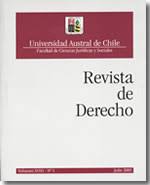Positivism in chilean criminal law. A synchronic and diachronic analysis of an early 20th century doctrine still in use
Main Article Content
Abstract
Against the predominant opinion, this article describes how Criminal Positivism developed in Chile since the early 20th Century, starting from the influences of Valentín Letelier and Raimundo del Río in their university teachings. This work acknowledges the impact positivist ideas had on other contemporary authors, on the Erazo-Fontecilla (1929) and Silva-Labatut (1938) Criminal Code projects, on the Antisocial States Act (11.265) and on the Conditional Remission of Punishment Act (7.821); contrary to the dominant view, the author sustains the hypothesis that positivist theses remain effective in our criminal law system, especially in criminal procedural practices, to the extent that our actual punitive system, including alternative sentencing (conditional suspension of procedure), the “sanctions” contemplated in the Teenage Responsibility Law Number 20.084 and the measures of Law Number 18.216 (conditional remission and parole), can be described as positivist, because the length and type of effectively imposed measures are mostly determined on the basis of criteria regarding the accused’s dangerousness.

